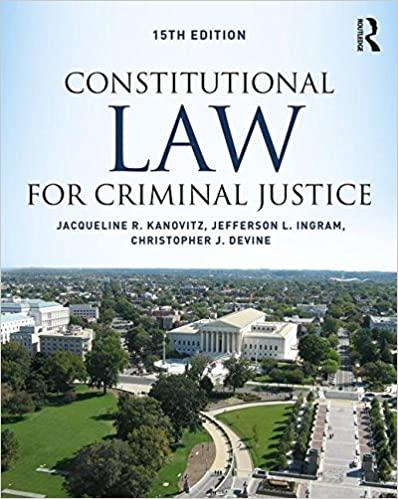Question
1. When a rule or law doesn't sweep wide enough to accomplish its stated purpose, affecting too narrow a range of people, that is called
1. When a rule or law doesn't sweep wide enough to accomplish its stated purpose, affecting too narrow a range of people, that is called
2. The case that determined that schools can regulate student speech when the forbidden conduct has materially or substantially interfered with requirements of appropriate discipline in the operation of the school is ______________________.
3. A coach at a public high school in Florida walked out of school with her team when the students were protesting the "Don't Say Gay" bill. Next to her student-athletes, she held a protest sign and shouted chants criticizing the Florida governor. The athletic director thinks that coaches should totally stay out of it, and suspended the coach for her participation in the protest. The coach sues the school for a violation of her constitutional right of Freedom of Speech. Which level of scrutiny would the court use to analyze her claim?
4. The South Carolina high school athletic association has zero-tolerance drug/ alcohol policy for student athletes during their season. T.W., a high school wrestler, was arrested for drunken driving. The SCHSAA suspended him for the rest of the wrestling season. There is not a zero-tolerance policy who students at his school who are not student-athletes. He wants to sue under equal protection because he feels he is being discriminated against. What level of scrutiny would the court use to decide his case?
Step by Step Solution
There are 3 Steps involved in it
Step: 1

Get Instant Access to Expert-Tailored Solutions
See step-by-step solutions with expert insights and AI powered tools for academic success
Step: 2

Step: 3

Ace Your Homework with AI
Get the answers you need in no time with our AI-driven, step-by-step assistance
Get Started


